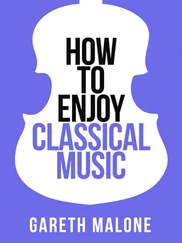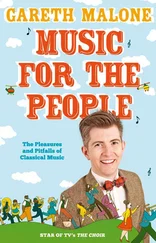STEPHEN FRY - OF CLASSICAL MUSIC
Здесь есть возможность читать онлайн «STEPHEN FRY - OF CLASSICAL MUSIC» весь текст электронной книги совершенно бесплатно (целиком полную версию без сокращений). В некоторых случаях можно слушать аудио, скачать через торрент в формате fb2 и присутствует краткое содержание. Жанр: на английском языке. Описание произведения, (предисловие) а так же отзывы посетителей доступны на портале библиотеки ЛибКат.
- Название:OF CLASSICAL MUSIC
- Автор:
- Жанр:
- Год:неизвестен
- ISBN:нет данных
- Рейтинг книги:5 / 5. Голосов: 1
-
Избранное:Добавить в избранное
- Отзывы:
-
Ваша оценка:
- 100
- 1
- 2
- 3
- 4
- 5
OF CLASSICAL MUSIC: краткое содержание, описание и аннотация
Предлагаем к чтению аннотацию, описание, краткое содержание или предисловие (зависит от того, что написал сам автор книги «OF CLASSICAL MUSIC»). Если вы не нашли необходимую информацию о книге — напишите в комментариях, мы постараемся отыскать её.
OF CLASSICAL MUSIC — читать онлайн бесплатно полную книгу (весь текст) целиком
Ниже представлен текст книги, разбитый по страницам. Система сохранения места последней прочитанной страницы, позволяет с удобством читать онлайн бесплатно книгу «OF CLASSICAL MUSIC», без необходимости каждый раз заново искать на чём Вы остановились. Поставьте закладку, и сможете в любой момент перейти на страницу, на которой закончили чтение.
Интервал:
Закладка:
Handel was a shrewd cookie, a clever entrepreneur who always knew which side his bread was buttered when it came to the next commission, or concert series or cushy job - very much the smooth operator. Bach? Well, Bach was a bit hopeless with money. He never really felt comfortable in 'building his part up' as it were, and even went to gaol because he couldn't always bite his tongue when confronted by someone dangling a state job in front of his nose. And having a family the size of Bournemouth didn't exactly help much, either. I always had the image of the Bach family home as a bit like the one in the Monty Python film, The Meaning of Life - kids leaping out of cupboards and cries of'Ooh, get that for us, will you, Deirdre?' as another sibling comes into the world.
Also, I imagine, and, true, I'm just surmising here, but I get the feeling Handel was a bit of a goer - liked to party, eat for both England and Germany at the same time, and generally live a little. Bach was more the pious, totally dedicated and strictly Lutheran artist, who worked to express the profound musical thoughts that were in his head, for the glory of God. It's said he once walked a round trip of some 426 miles and several pairs of boots, just to hear a recital by fellow composer Buxtehude. To be fair, that could be down to commitment, but it could also be just general 'organist madness'. Organists, see! Take my word for it - they're not normal.
Bach's output, despite his dishevelled life, was staggering. The job of collecting and publishing all his music took some forty-six years.
To get some idea of the similarities of Bach and Handel, and yet, at the same time, the amazing differences, you could do worse than listen to the Water Music back to back with the Brandenburg Concertos. Bach's Brandenburg Concertos are simply DIVINE, absolutely fantastic - I couldn't rave about them enough. And yet they have a general… seriousness about them. Alongside them, Handel's Water Music is overwhelmingly joyous and, dare I say it, almost light. In fact, even the genesis of the two pieces is typical of both composers. Bach's were a slightly desperate gift to the Margrave of Brandenburg, given to him in the hope of eliciting some much needed money - money which never came, sadly. Handel's, on the other hand, were light and fun - twenty short pieces written to accompany George I on a boat trip up the Thames. Indeed, their first performance was on a boat, rocking like nobody's business, with musicians desperately trying to keep their music on the stands/ Somehow I couldn't see Bach in the same role. That said, both pieces are brilliant and gorgeous, and I couldn't live without either.
ANT AND HIS SISTERS
Q
uick update, if I may. Technology, first. Technology is coming on in leaps and bounds. Someone, for example, makes a bid to be forever remembered in the history of music by inventing the piano. The guy's name was Cristofori. I repeat… Cristofori. You see, I can't .0 Mmmm, lean see the school essay subject now: 'HanAel was not so much a composer as a Royal Ghetto Blaster - discuss. Not more than 1,000 words.' help thinking that he missed a trick, really - more or less blew the 'history' bit. He should have taken a leaf out of, say, Biro or Hoover's book, and called it the Cristofori. That way, today we would be quickly nipping over and playing scales on the 'Cristofori', or listening to Cristofori concertos. Even watching tea commercials on TV where performing chimps said, 'Eh, Dad. Do you know the Cristofori's on my foot?' 'No, but you hum it, son, and I'll play it.' As it is, he called it a 'piano', and, so nobody knows his name.
What else? Well, Handel and another of the big, young composers, Domenico Scarlatti, have had a piano duel. That's just like a real duel, only you're expected to kill your opponent by throwing a piano at them. Not surprisingly, it was declared a draw, and they both lived/© Elsewhere, we've had the first cricket match - Londoners versus Kentish men - and also in England banknotes are now in. Only a matter of time, I suppose, in that snuff had been around since 1558, so… well, sooner or later you were going to need a banknote, weren't you? All this AND the Prussian army introduce pigtails as their standard haircut, beating the corporate Britain of the 1980s by some 270 years.
Now, I want to introduce you to Antonio Vivaldi, the man who wrote 400 concertos. Or, as Stravinsky said, wrote one then copied it out a further 399 times. (Saucer of milk for the Russian - he was expressing the not uncommon view, it has to be said, that many of Vivaldi's concertos can sound a little… well, samey. At least after the first 200.)
Vivaldi was born in Venice just three years after? amp; H and was lucky enough to have a rather musical dad - a fiddler at St Mark's. At the age of fifteen he entered the priesthood, and was ordained fully some ten years later. The combination of his holy orders and his mop of Chris Evans ginger hair led to him being nicknamed Hlprete rosso\ the red priest, although having a special dispensation that allowed him not to say Mass, I'm not sure quite how much of a priest he could have been. It's a bit like being a rugby player, but not actually playing any matches. (So, Jonny Wilkinson at the moment, then.) Vivaldi spent most of his professional life as music director of a girls' fi amp;OK, that's not what a piano duel is at all, I know. But it does sound more fun. The real duel saw Handel playing organ and Scarlatti playing keyboard, and each was adjudged to be the best on their respective instruments. «»rphanage in Venice, the Conservatorio dell'Ospedale della Pieta -or, often, the Pieta, for short.
His priesthood was called into question, again, when he was rumoured to be more than just good friends with not just one soprano but two: sisters, Anna and Paolina. Eventually he, too, like Handel, I ravelled all over Europe, but precious little is known about what he got up to. He spent the last couple of years of his life in Vienna, where, sadly, he pulled off the Composer's End No 207 - the so-called 'Death in Poverty' position - perfectly. He was sixty-three. Thankfully, he left behind him some fifty operas and 400 or so concertos (or just one if you agree with Stravinsky), the most well known, now - almost to the point of distraction - being part of Tl cimento dell'Armonia e dell'in-ventione' Opus 8. That is, The Tour Seasons: not just a beautiful series of concertos, but also not a bad hotel and a fine pizza.
THE PACKAGE HOLIDAY
W
ell, it's 1725 already. My word, doesn't time fly when you roll it up and throw it at somebody. 1725. The year of The Tour Seasons. The year that Peter the Great became less so, in that he died. The year that Bach, in a breathtaking display of foresight, wrote the music for a mobile telephone incoming call alert, although he called it the Anna Majjdalena Notebook.
The year the Italian adventurer and author Casanova was born and, very soon, became the next big thing. But where exacdy ARE we? What age is it now? Who's in, who's out, who's up, who's down? And why DO birds suddenly appear every time YOU are near? Well, let me try and answer some of those questions, starting with the easiest first.
It's no longer the age of Wren - Sir Christopher is now a two-year-old tourist attraction in his beloved St Paul's. It is, though, still the age of one of the greatest double acts in science - Isaac ('gravity') Newton and Edmond ('comet') Halley. It is also, arguably, the time of Congreve, the man who put the 'oration' into 'Restoration comedy', with his deft prose and elegant construction.
It was, too, the age of the Grand Tour. Now I could have coped with this. Ever since the delightfully named French painter, Hyacinth Rigaud, had written a sort of eighteenth-century version of the 'rough guide' to the Grand Tour, everyone had been at it. Composers, artists, even Tsars - Peter the Great had tried it before he croaked, under a pseudonym/ Anyhow, with the Grand Tour came the grand tacky souvenir, naturally. In fact, a whole school of artists grew up, the ' volutin? or panoramists, who fulfilled the demand for memories of Italy by positioning themselves in the major tour resorts and coming up with huge, horizontal horizons of Venice and other places. No doubt each one bore the legend lMia Mamma e andata a Veneziana, e tutto questo que mia apportato e questa bruta maglutta?pf Canaletto is the man remembered now for this sort of stuff, although at the time Francesco Guardi was perhaps more popular.
Читать дальшеИнтервал:
Закладка:
Похожие книги на «OF CLASSICAL MUSIC»
Представляем Вашему вниманию похожие книги на «OF CLASSICAL MUSIC» списком для выбора. Мы отобрали схожую по названию и смыслу литературу в надежде предоставить читателям больше вариантов отыскать новые, интересные, ещё непрочитанные произведения.
Обсуждение, отзывы о книге «OF CLASSICAL MUSIC» и просто собственные мнения читателей. Оставьте ваши комментарии, напишите, что Вы думаете о произведении, его смысле или главных героях. Укажите что конкретно понравилось, а что нет, и почему Вы так считаете.










